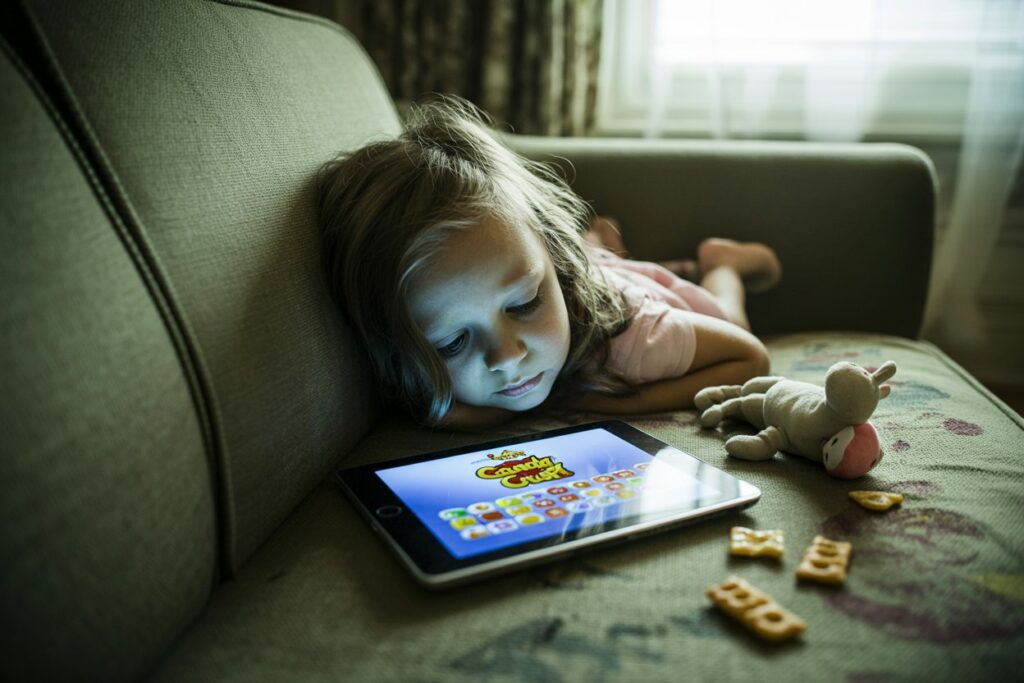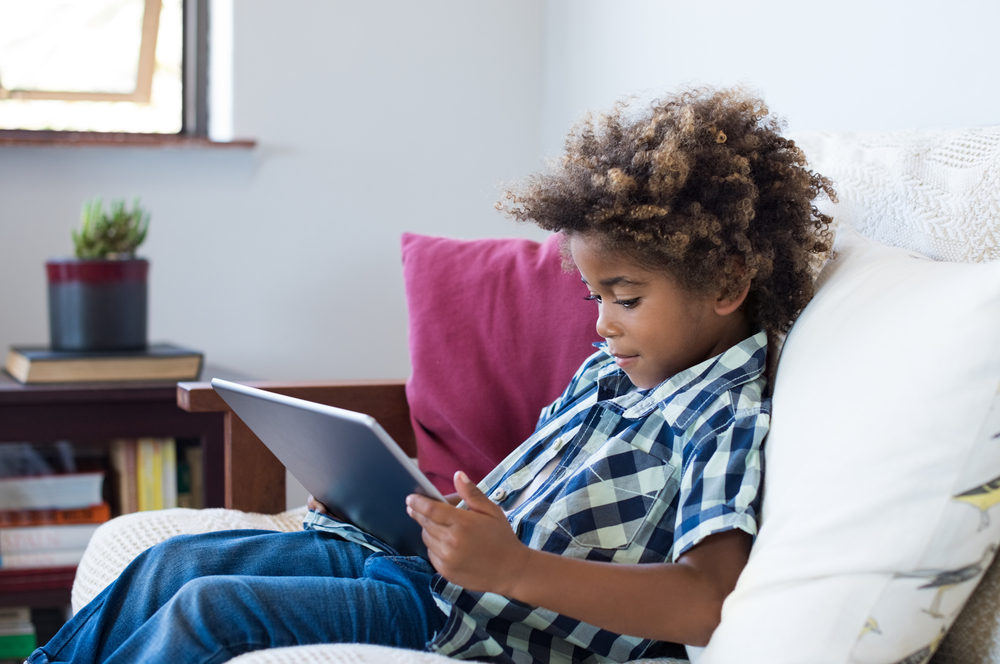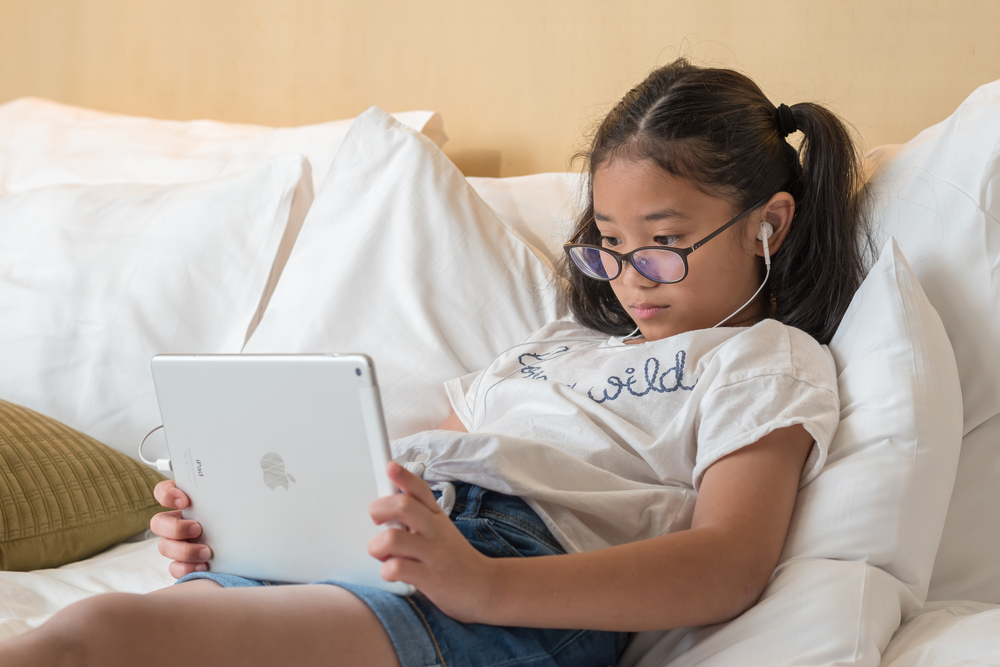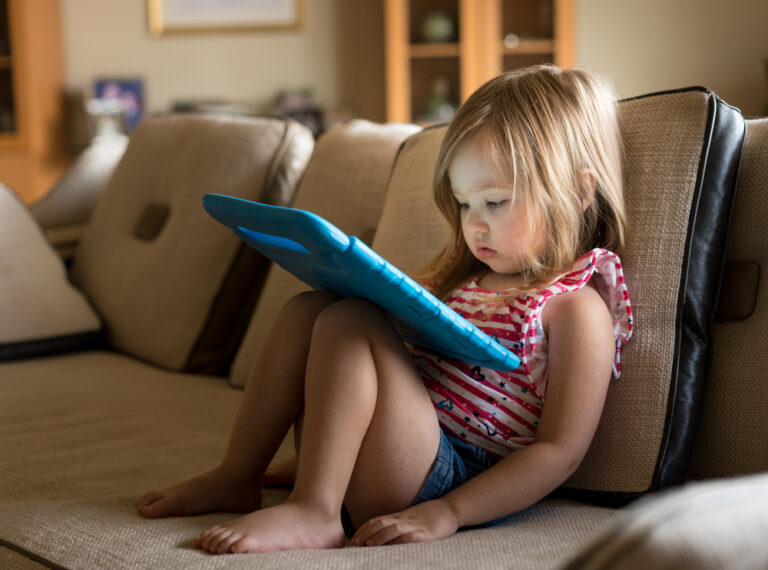
Today’s elementary-aged kids are the first generation to grow up fully immersed in digital screens. As parents, we often notice the immediate benefits – a quiet car ride thanks to a tablet or some learning apps that keep them occupied.
But behind the scenes, screens may be subtly altering how our kids think, feel, and grow. Below we countdown seven surprising ways that heavy screen use is quietly reshaping childhood, from the least concerning (#7) to the most concerning (#1). (No, this isn’t about shaming anyone’s parenting – consider it a peek into what researchers have been discovering about our always-plugged-in kids.)
7. Fading Creativity and Imagination
Kids claim “I’m bored!” a lot less these days – but that might not be a good thing. Constant access to videos and games means young minds get fewer chances to invent games, draw doodles, or let their imagination roam. Child development experts note that boredom is actually “the space in which creativity and imagination happen”.
If every spare moment is filled by a screen, kids miss out on daydreaming and make-believe play. In fact, some researchers argue that excessive gadget use can even impoverish the imagination. Over time, a child who never has a dull moment might grow reliant on external entertainment and struggle to generate their own creative fun.
=> NEW: The Screen Time Revolution
6. Less Physical Play and Movement

Remember when childhood meant biking around the neighborhood or playing tag until dusk? These days, many kids log hours sitting with tablets or TVs instead of running around. Unsurprisingly, more screen time often translates to more sedentary time – and that can take a toll on kids’ health. Studies have linked high screen use with lower fitness and higher obesity rates in children.
(One global report found that nearly 40 million kids under five were overweight, with excessive screen exposure contributing to a cycle of less physical activity and poorer sleep.) Simply put, every hour spent glued to YouTube is an hour not spent climbing, jumping, or exercising those growing muscles. Over months and years, that adds up – potentially leading to weaker motor skills and unhealthy weight gain. And beyond weight, kids who don’t get enough active play can miss out on building coordination and strength during crucial developmental years.
5. Disrupted Sleep Patterns
Children who use screens before bed tend to sleep 30–60 minutes less than those who don’t. Screens aren’t just keeping kids awake later; they also mess with the quality of sleep. Tablets and smartphones emit blue light that tricks the brain into suppressing melatonin, the hormone that makes us sleepy. Ever notice how a bedtime cartoon can perk your child right up? That’s the blue light at work.
Research has consistently found that more screen time – especially in the hour before bedtime – is linked to delayed bedtimes and shorter total sleep in children. Over time, a chronically overtired kid might have trouble with mood, memory, and even physical growth (since so much growth hormone releases during deep sleep). So if your little one is cranky in the mornings, the tablet time before lights-out could be a quiet culprit.
=> NEW: The Screen Time Revolution
4. Shorter Attention Spans
Many parents (and teachers) have noticed it: after a weekend binge of fast-paced cartoons or games, kids seem extra fidgety and unfocused. It’s not your imagination – studies are finding real links between heavy screen exposure and attention difficulties. In one large study, 5-year-olds who logged more than 2 hours of screen time per day were nearly six times more likely to have significant attention problems than peers who had under 30 minutes a day. Even more alarming, they were 7.7 times more likely to meet clinical criteria for ADHD.
A broad review of research confirms that excessive screen use is associated with greater inattention and impulsivity in children. Why? One theory is that rapid-fire videos and apps condition kids to expect instant gratification and constant stimulation. Real life (and classroom lessons) can’t always compete with flashing cartoons and quick rewards. The result is that activities requiring patience – reading a book, listening to a teacher, or just playing quietly – feel unbearably slow to a child used to the turbo-charged pace of digital media.
3. Stunted Social Skills and Empathy

Face-to-face playtime – from chatting with friends to reading a peer’s body language – is how kids traditionally fine-tuned their social skills. But when much of their interaction shifts to screens (texts, video chats, solo gaming), those in-person social muscles might not get as much exercise.
Research from UCLA offers a striking example: a group of preteens was sent to a device-free outdoor camp for five days, and afterwards they scored significantly higher at reading nonverbal emotional cues (like facial expressions) than a control group that stayed home with their phones. The kids who kept up their usual screen-heavy routine showed no improvement in recognizing others’ emotions.
Psychologists say that decreased sensitivity to emotional cues is one cost of too much screen time, as it “seems to be reducing social skills” in the long run. In simple terms, if children spend more time staring at iPads than at people’s faces, they get less practice in empathy. They might struggle more with interpreting tone of voice, sharing, taking turns in conversation, or understanding a friend’s feelings – all subtle but crucial life skills.
=> NEW: The Screen Time Revolution
2. Trouble with Emotional Self-Regulation
Anyone who’s tried to pry a tablet away from a upset kid knows: it often feels like the only way to stop the screaming is to give it back. Many parents now use phones or tablets as a digital pacifier – a quick fix for tantrums and big feelings. The irony is that this can boomerang over time.
A recent study in JAMA Pediatrics found that preschoolers who were frequently given a device to calm down actually became more prone to emotional outbursts and had worse self-regulation months later. By outsourcing calming to an iPad, kids aren’t learning to soothe themselves, so their natural coping skills don’t get a workout. Pediatricians have observed a vicious cycle: the more a child relies on screens to manage emotions, the bigger the meltdown when the screen is eventually taken away.
Kids can become less practiced at handling frustration or boredom without a device in hand. What’s happening is that the screen is a distraction, not a solution – it quiets the child in the moment but doesn’t teach any long-term skill. So when real life brings stress (a cancelled playdate, a “no” from a parent), a child who’s used to calming by Paw Patrol might have an even tougher time dealing with those feelings unaided.
1. Mood and Mental Health Strains
Perhaps the most worrisome changes are the ones happening to kids’ emotional well-being. Mounting evidence suggests that heavy screen use is linked to higher risks of anxiety and depression in the young.
One long-term study tracked over 9,000 children (initially 9–10 years old) and found that those who spent more time on screens were more likely to develop depressive symptoms and some anxiety by the time they were 11–12. The increases were modest but significant – and they showed up even at these preteen ages. Researchers noted that screen time was “closely tied to depressive symptoms” in particular. Why might screens sap a child’s mental health? Experts point out that hours spent on devices often replace activities known to boost mood and resilience, such as physical exercise, adequate sleep, and in-person social interaction.
For instance, a child glued to YouTube is probably not running around outside (exercise helps ward off anxiety) or is staying up past their bedtime (sleep loss affects mood). Moreover, social media and online videos can expose kids to unrealistic comparisons or stressful content at a young age. Over years, this combination of reduced healthy habits and increased digital stressors can quietly weigh down a child’s emotional state. While more research is ongoing, the takeaway is clear: too much screen time isn’t just a harmless habit – it’s increasingly seen as a risk factor for kids’ mental and emotional wellness.
=> NEW: The Screen Time Revolution
References
- JAMA Pediatrics – Longitudinal Associations Between Use of Mobile Devices for Calming and Emotional Reactivity and Executive Functioning in Children Aged 3 to 5 Years – Jenny S. Radesky et al. – 2023.
- PLOS ONE – Screen-time is associated with inattention problems in preschoolers: Results from the CHILD birth cohort study – Tamana, S.K. et al. – 2019.
- Harvard Medical School News – Screen Time and the Brain – Debra Bradley Ruder – 2019.
- Global Pediatric Health – Bedtime Use of Technology and Associated Sleep Problems in Children – Caitlyn Fuller, Eric Lehman, Steven Hicks, Marsha B. Novick – 2017.
- Sports (MDPI Journal) – Associations Between Screen Time, Physical Activity, and Sleep Patterns in Children Aged 3–7 Years — A Multicentric Cohort Study – Paula Torres et al. – 2025.
- Computers in Human Behavior – Five days at outdoor education camp without screens improves preteen skills with nonverbal emotion cues – Yalda T. Uhls et al. – 2014.
- BMC Public Health – Screen time and mental health: a prospective analysis of the Adolescent Brain Cognitive Development (ABCD) Study – Jason M. Nagata et al. – 2024.



